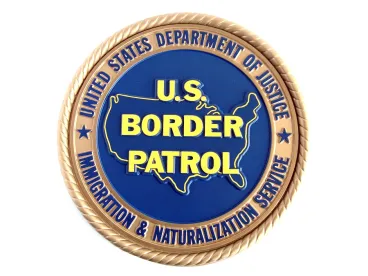U.S. importers are seeing an increase in enforcement activity by U.S. Customs and Border Protection. Here are the ten things you must know about this trend.
1. Increased enforcement is mandated from the top. New legislation in 2016 created the first comprehensive reauthorization of CBP since the creation of the Department of Homeland Security in 2003. The overall goal of the new law is to protect the economic security of the United States. In CBP’s strategic plan implementing the new law, the following actions are mandated:
• Increase the number of exams and targeted audits
• Use predictive analytics to identify audit targets; and
• Leverage whistleblowers, intelligence sources, and industry collaboration to identify high-risk trade.
2. The increasing enforcement trend is real. The numbers are in for the last two years of enforcement activity under the new law. Seizures for trade remedies violations alone increased 31%; audits increased by a similar factor; and total collectable fines and penalties were $100 million in 2016 (the last year for which data are available) compared to $59.3 million in Fiscal Year 2015. That is a 68% increase in fines and penalties over a single year.
3. CBP has big data on your imports. The new Automated Commercial Environment (ACE) is now nearly fully implemented. Virtually all U.S. import filings are conducted electronically through ACE, which is great because it eliminates tons of paperwork. It’s also great for enforcement because it allows all import data to be collected in a single place and analyzed by CBP (see point 4).
4. CBP is crunching your import data. CBP’s import data analysis is increasing daily. It uses very sophisticated algorithms to spot anomalies in import data, which helps it target specific importers for further scrutiny. Audits that used to be almost all random are now a sophisticated mix of random and highly targeted.
5. The agency has lots of help. CBP chairs a body known as the Commercial Targeting and Analysis Center (CTAC), composed of 12 U.S. government agencies working together to target commercial shipments that pose a threat.
6. Big importers are increasingly targeted; all importers are at risk. One important factor in the CBP auditing algorithms is the size of your import account. Typically, if you import $100 million or more in goods into the United States in a year you should consider yourself a very likely candidate for an audit. But audits can target any importer and any issue, including NAFTA compliance, tariff classification errors, compliance with antidumping and countervailing duties orders, and the whole range of import compliance.
7. You may be informed of enforcement actions in multiple ways. CBP can issue written requests for information, written “informed compliance notification letters,” or even a telephone notification that the company has been chosen for an audit. Be sure you have a system in place to escalate any CBP communication to the right person in your organization.
8. Penalties can be very significant. Penalties for customs violations can range from double the import duty loss for mere negligence (or 20% of the value of the goods if the violation did not affect the assessment of duties) up to the entire value of the imported merchandise in cases of fraud.
9. Consider a Prior Disclosure. Under customs law, fully disclosing a violation to CBP before a formal CBP or Immigration and Customs Enforcement (ICE) investigation of the violation can result in penalties being substantially reduced or eliminated.
10. You can mitigate penalty risk by conducting an internal risk assessment. It is best to know your risks before Customs comes calling. If you haven’t conducted a thorough Customs risk assessment, consider conducting one. New methods of statistical sampling have been authorized in customs cases, which can substantially streamline your risk assessment activity. Once you know your risk areas, you can make an informed decision about whether to file a prior disclosure.
Awareness of these 10 aspects of the new U.S. customs enforcement environment should help you focus your compliance efforts.



 />i
/>i

